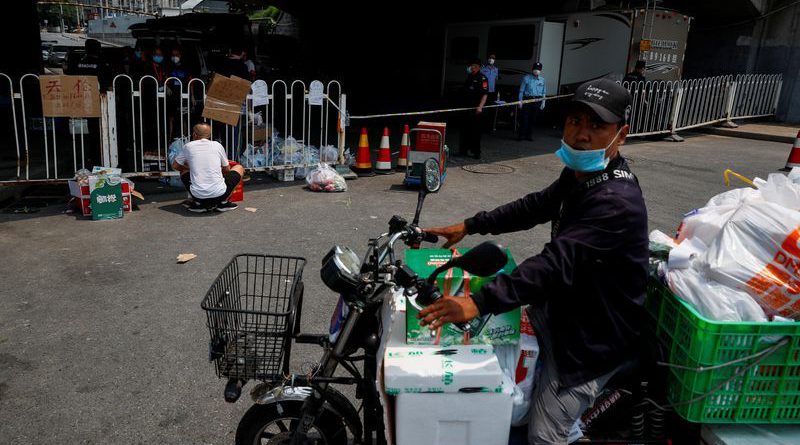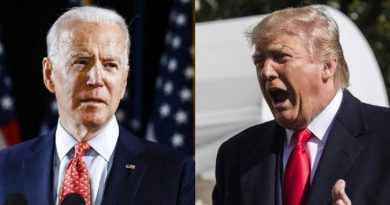Beijing tests food and parcel couriers as coronavirus checks widen
Beijing (Reuters) – Officials in Beijing are carrying out tests to detect traces of coronavirus on all food and parcel delivery workers in an effort to rein in a new outbreak, state-backed media reported on Saturday.
Officials in the Chinese capital have been expanding nucleic acid testing across the city of 20 million since a cluster of infections linked to a food wholesale market erupted just over a week ago.
The outbreak, the first in Beijing in months, has now surpassed previous peak numbers in the city in early February.
A nucleic acid test involves a swab sample taken from the back of a person’s throat or respiratory tract, and the sample is then tested for the presence of the coronavirus’ genome.
Testing was initially focused on residential areas near the sprawling Xinfadi market and on people who worked or shopped there.
Officials are now targeting the tens of thousands of delivery personnel who regularly traverse the city, where fleets of motorised pedicabs and scooters ridden by couriers delivering parcels and food are a common sight.
Workers at SF Express, China’s second biggest courier firm, arrived in batches at testing points in Beijing on Friday evening, Beijing News reported.
Food delivery firm Meituan Dianping (3690.HK) confirmed that all of its riders in the city would be tested and those who had carried out deliveries in high-risk areas would be temporarily taken off duty, undergo nucleic acid tests and be quarantined at home for 14 days.
Customers will be able to view details on disinfection of the delivery package and their courier’s body temperature online, Meituan said on its Wechat account.
Beijing News said that all couriers in the city would be tested by next week.
Officials have highlighted the risk of contamination through packaging in Beijing, which reported 22 new cases on Friday. The capital has now recorded more than 200 locally transmitted infections since June 11.
Officials have been testing people working in catering, including restaurant staff, as well as imported food after the virus was found on chopping boards at Xinfadi used to handle salmon.
Whole communities to be tested
A total of 2.3 million nucleic acid tests had been carried out in Beijing as of 0600 local time on Saturday (2200 GMT on Friday), Zhang Qiang, an official from Beijing’s municipal committee, said at a news conference.
Residents of 40 communities under lockdown in the capital are required to self-isolate at home to avoid possible further transmission of the virus, Zhang said.
Those that do not comply will be centrally quarantined for 14 days, after which they should take another nucleic acid test and are free to leave if the result is negative, he added.
In Dongcheng district in the eastern part of Beijing, two Reuters journalists received notice on Friday that everyone living in their communities would be tested, even though they were in low-risk areas.
Dongcheng currently has four neighbourhoods designated as medium-risk, while there are now 34 medium-risk neighbourhoods across the whole city.
Mainland China saw 27 new confirmed coronavirus cases on Friday, with four imported and the other local transmission reported in the northern Hebei province that surrounds Beijing.
There were no new deaths recorded on Friday, leaving the death toll at 4,634.



